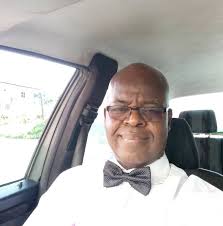In the ongoing discourse surrounding gender equality and representation, it’s crucial to examine our approach to inclusiveness and ensure that it truly encompasses all genders. While significant strides have been made in advocating for women’s rights, there are aspects of the gender equality movement that warrant closer scrutiny and a more balanced perspective.
## Questioning the Balance
Have you ever wondered when the International Day of the Boy Child is celebrated? If we have a national woman leader, shouldn’t we also have a national man leader? Similarly, if there’s a Ministry of Women Affairs, shouldn’t there be corresponding ministries for Men Affairs, Boys Affairs, and Girls Affairs? These questions highlight the need for a more comprehensive approach to gender inclusiveness.
## The Limitations of Mainstream Feminism
Feminism, in its current form, often appears to be elitist and disconnected from the everyday challenges faced by young women. When was the last time you heard feminists advocating for increased admission of young females into universities? Or pushing for the recruitment of young women into the police force, army, navy, air force, or public service? The feminist agenda seems to become most vocal when it comes to contesting elections, securing appointments, or attending international conferences.
It’s important to distinguish between those who genuinely help young girls and those who merely pay lip service to feminist ideals. Several female leaders have made significant contributions to empowering younger women, and their efforts deserve recognition. Some notable examples include:
– Hon. Justice Esohe Ikpomwen and Hon. Justice Esther Edigin, former Chief Judges of Edo State
– Princess Ambassador (Dr.) Rosemary Osula Atu-Mku (Rosula Foundation)
– Senator Daisy Danjuma (Danjuma Foundation)
– Professor Lillian Imuetiyan Salami, Vice Chancellor, University of Benin
– Professor Yinka Omorogbe SAN, former Attorney General of Edo State
These women have been beacons of hope, illuminating the path for young females to rise in their respective fields.
## The Silence on Critical Issues
There have been instances where the feminist movement has been noticeably silent on critical issues affecting young women:
1. The case of a young Nigerian female soldier who alleged multiple instances of sexual assault by her superiors saw little to no support from feminist groups. It was primarily male advocates who brought attention to her story.
2. Miss Favour, a Nigerian sprinter, was unfairly excluded from the 100-meter event at the Olympics due to administrative oversights by Nigerian Olympics Committee officials. The feminist community’s response was largely muted.
3. The plight of numerous young Nigerian girls who are out of school or struggling to find employment rarely features prominently in feminist discourse.
Even on the International Day of the Girl Child, it’s uncommon to see feminists putting young girls at the forefront of their activities. It took the initiative of the Speaker of the House of Representatives, Right Honorable Tajudeen Abbas, to appoint a 16-year-old girl as Speaker Pro Tempore to celebrate and highlight the potential of the girl child – a commendable gesture that should be more common.
## The Need for Structured Mentorship
There is a conspicuous lack of structured mentorship programs for young girls organized by feminist groups. As a proponent of gender inclusiveness, I have encouraged mentorship and internship opportunities for both male and female law students with practicing lawyers. This is the kind of practical support that feminist organizations should be providing. For instance, what prevents the International Federation of Women Lawyers (FIDA) from establishing a FIDA Internship Programme, or the Nigeria Association of Women Journalists (NAWOJ) from creating a NAWOJ Internship Programme?
It’s worth noting that young females often find more support and opportunities for advancement from male colleagues and superiors, as some older females may perceive them as competition rather than as protégés to nurture.
## Rethinking Our Approach
The current feminist movement seems to seek constitutional solutions for personal problems, which may not always be the most effective approach. It’s crucial to recognize that gender dynamics are complex and that men, too, experience their own forms of societal pressure and expectations.
To achieve true gender inclusiveness, we need a more balanced, nuanced approach that considers the needs and challenges faced by all genders. This includes:
1. Creating equitable opportunities for education and employment for both young men and women.
2. Establishing mentorship programs that cater to the specific needs of different genders.
3. Addressing issues of discrimination and harassment regardless of the victim’s gender.
4. Promoting a more inclusive dialogue that doesn’t pit one gender against another but rather seeks to uplift all.
5. Recognizing and celebrating the achievements of individuals based on merit, irrespective of gender.
By broadening our perspective and working towards genuine inclusiveness, we can create a society that values and empowers all its members, regardless of gender. This approach will lead to a more harmonious and equitable world for everyone.
—
Douglas Ogbankwa Esq.,
Promoter of Gender Inclusiveness
(@douglasogbankea@gmail.com)
Gatekeepers News is not liable for opinions expressed in this article; they’re strictly the writer’s






